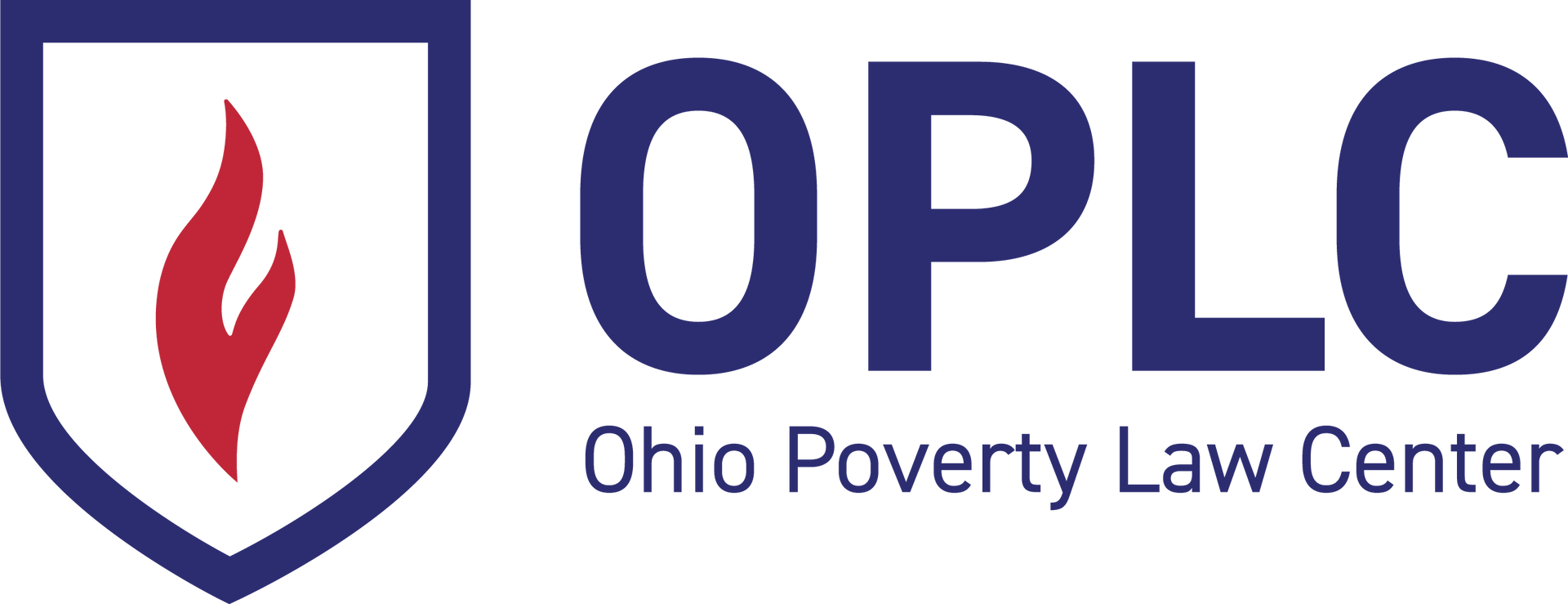MARCH 2024 NEWSLETTER
Senate Select Committee on Housing Wraps Up Its Hearings
Created to learn what additional steps the state can take to encourage homeownership while removing barriers that entrepreneurs encounter as they work to revitalize our neighborhoods, the Senate Select Committee on Housing started its work in August 2023. After 10 meetings, including field hearings in Cincinnati, Marietta, Lima, and Cleveland, the Committee is working to compile its findings. OPLC and the Coalition for Homelessness and Housing in Ohio worked with the Tenant Protection Roundtable and advocates across the state to submit recommendations to the Committee as it prepares to issue its final report. The recommendations include:
Create a uniform process for eviction record sealing.
An eviction record can have significant negative consequences for a person’s credit and ability to find safe and secure housing even if the eviction was dismissed, was not the fault of the tenant, or occurred many years earlier and is no longer indicative of their ability to pay rent. A 2020 study of over 3.6 million administrative eviction court records from 12 states found that, on average, 22 percent of eviction records contain ambiguous information on how the case was resolved or falsely represent a tenant’s eviction history. Furthermore, from 2010-2020, The Supreme Court of Ohio reports an average of 24,485 eviction cases are dismissed per year in Ohio. In our competitive housing market, tenants need a pathway to seal old or misleading eviction records. Ohio should join Indiana, Illinois, Minnesota, New York, Maine, Washington, Oregon, Colorado, California, and Nevada in enacting statewide legislation to ensure more reasonable access to records that can jeopardize someone’s housing stability for decades.
Support local efforts to hold irresponsible out of state LLC landlords accountable through reasonable transparency and rental registries.
Few issues were raised more frequently during the Select Committee hearings than the challenges faced by tenants and local governments when seeking accountability for irresponsible out of state investors and absentee landlords. Ohio should empower local governments to solve these problems by enacting legislation similar to the transparency provisions of Senate Bill 76 and supporting local rental registries. When local governments and tenants are able to identify who actually owns rental properties in their communities, they can hold those parties responsible for conditions standards, ORC 4735.02 real estate licensing requirements, and more. Locals can also use rental registries as the foundation for programs to reward good landlords, like Tulsa, Oklahoma’s Gold Star Landlord Program.
Fund and support access to counsel pilot programs to keep families housed and save community resources.
A 2023 study of evictions in Hamilton County found that only seven percent of tenants were represented by counsel compared to 93 percent of landlords and that tenants who had counsel had an 84 percent lower risk of receiving an eviction order than tenants who lacked legal representation. This disparity in representation is widespread. To address this imbalance, Cleveland City Council passed an ordinance in 2019 funding access to counsel for families facing eviction who are at or below 100 percent of the federal poverty level with at least one minor child in the household. An independent evaluator estimated in a 2022 report that between July 1, 2020 and December 31, 2022, Cleveland and Cuyahoga County likely realized economic and fiscal benefits of between $11.8 million and $14 million as a result of the Right to Counsel program. Over the same period, the total investment in Right to Counsel was $4.5 million, resulting in an estimated return on investment between $2.62 and $3.11 per dollar invested. Increasing access to counsel for tenants helps prevent unnecessary evictions, keeps families housed, and saves community resources. Ohio should fund more access to counsel pilot programs across the state.
Make the tenant application process more affordable by restricting unnecessary junk fees and adopting legislation like Colorado’s HB23-1099 that allows tenants to use the same credit report for multiple rental applications as long as it is less than 30 days old.
Empower Ohio tenants with the ability to save their tenancy from an eviction for non-payment if they are able to make their landlord financially whole at the eviction hearing.
Protect tenants from substandard living conditions in neglected properties in rural areas where there’s no code enforcement office to turn to by strengthening statewide habitability standards.
We look forward to working with our partners and the General Assembly to increase affordable and safe housing options across the state.
